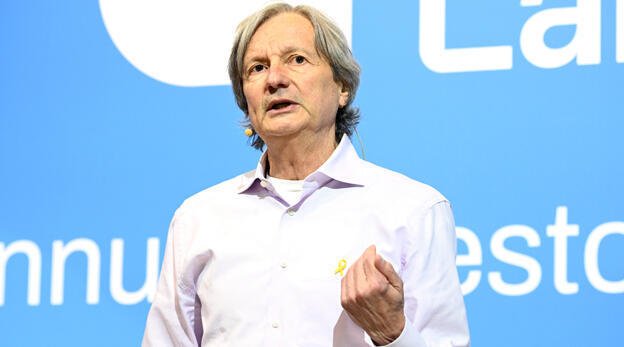Hamilton Lane, a leading American alternative investment management and advisory company, believes that the private markets will remain stable, despite the skepticism stemming from the slowdown in fundraising. This according to the firm’s private market outlook shared by Executive Co-Chairman Mario Giannini at Hamilton Lane’s Annual Investor Event Monday evening at Ma’arava at Kibbutz Gaash.
“In the past, investments in the private markets were considered a speculative matter involving high risk, but today the perception has changed and the private markets are expanding and occupying a substantial part of the investment portfolios of investors around the world,” said Giannini.
According to him, the continued growth of the private markets is mainly due to the excess returns they generate compared to the public markets. Investors and financial advisors who have an understanding of investments in the private markets, understand the potential inherent in these investments and recommend their integration into the investment portfolios they manage. In light of this, and alongside a growing trend towards more liquid and/or more flexible investments today, Hamilton Lane developed the Evergreen funds, which are a new and accessible way of allocating private capital to invest in the private markets.
According to Hamilton Lane’s comprehensive annual review, which includes an in-depth analysis of all activity in the private markets around the world and is based on Hamilton Lane’s vast database, it was found that the private markets have produced an excess return compared to the public markets, almost every year over the past decades, and even tends to be higher in periods when the public markets are in a slump and show a low or negative yield. During periods when the public markets are stronger, the excess return of the private markets over the public markets is indeed lower, but still exists.
“Hamilton Lane’s main message to its existing clients is to invest, be active, and not try to time the market,” Giannini said. “Stay the course, the current market will not become cheaper, the high profits are an existing reality, and most likely the market will continue in its current trend for a considerable period of time.”
Customers who were troubled by the revaluations and the lack of liquidity will be encouraged by the annual review, which concludes that the revaluations are supported by economic data, the liquidity has indeed decreased compared to the past, but the exits are going to be a pleasant surprise later this year.
Hamilton Lane also appeals to the general public who are not familiar with the private markets and invites them to join the trend. The most experienced investors in the world are increasing their investments in the private markets, in light of the excess returns they generated, even in years of public market declines, such as the last two years. Investing in public markets is often concentrated in a limited number of shares and less liquid than it seems. In contrast, the private markets offer better returns, greater liquidity than expected, and wider diversification than any investment alternative that exists today in the public markets.
Speaking about the challenges of fundraising. Giannini said, “Fundraising is really hard because there are too many funds. It has grown too much. They are like vampires, you can’t kill them all. That’s what makes it so challenging.”
At one point Giannini asked the audience, “Will this year see a rebound in activity? I don’t know. It’s the buyer vs the seller and it depends who blinks first. Usually the buyer blinks first, so I expect that will happen.”
Regarding American economics, Giannini said, “I am a pessimist by nature, but I still think there’s a reasonable chance we’ll have a soft landing in the US.”


